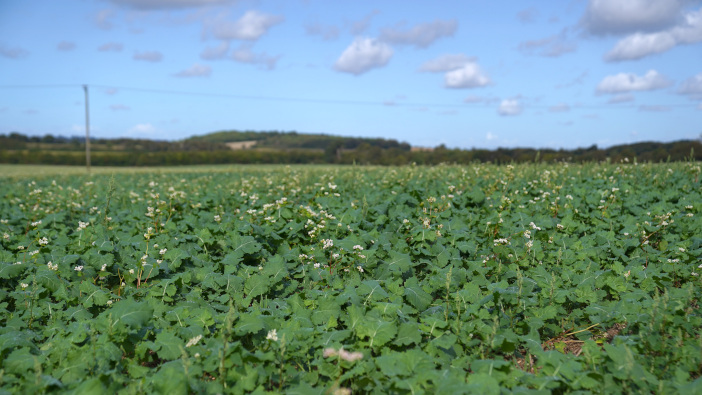A survey of UK farmers, contractors and agronomists has shown resilience among oilseed rape growers, as risk management strategies continue to evolve.
Growers have indicated a preference for longer rotations and a stronger focus on either early drilling, or a flexible approach which prioritises sowing seeds into moist soils wherever possible.
Corteva Agriscience’s survey received 250 replies and revealed that companion cropping is continuing to gain popularity, with nearly 50% of farms surveyed using the technique. Buckwheat and berseem clover were highlighted as the most popular companion cropping options.
Clare Stapley, oilseed rape herbicides category marketing manager at Corteva, said: “Unsurprisingly, the most popular reason given for why farmers grow oilseed rape was its function as a break crop – 74% of respondents told us this.
“This shows that oilseed rape is still an integral part of rotations, but we know that it’s not without its risks and challenges. The information gathered in this year’s survey has helped to shine a light on how growers are going about successfully establishing and protecting crops.”
Most growers plan to drill in August, with fewer than 20% opting for July or September. But rotations including the crop are generally becoming longer – 68% of growers leave a gap of at least five years.
Flexibility on drilling is the number one measure farmers said they were using in the battle against pests such as cabbage stem flea beetle (CSFB), with options including drilling early, late and/or adopting a no-till approach. Of those surveyed, 70% said min-till or no-till is their preferred approach.
The past two seasons have seen challenging conditions which have resulted in pressure from CSFB and tricky sowing conditions. To reduce the risk of crops being written off or performing poorly, many have shifted from pre-emergence herbicide strategies to post application sprays.
This tactic enables farmers to see the crop establish before making any decisions and reduces the up-front investment in crop protection products.
“The way we grow oilseed rape is changing and that means farmers and agronomists are looking at weed control from a new angle,” Ms Stapley added. “If you can delay your herbicide investment until you can judge the quality of the crop and the weeds present, you are reducing risk.”
Respondents listed blackgrass and cleavers as particular concerns. Corteva’s post-emergence autumn applied herbicide Belkar® is highly effective at treating many key weeds, such as cleavers, cranesbill, fumitory, poppies and shepherd’s purse.
“Belkar contains Arylex™ active, together with picloram and it delivers robust and reliable control of key problem weeds in variable temperatures, with a flexible window of application from September to the end of December,” she explained.
Propyzamide-containing products were identified as being key to effective grassweed control.
“Renowned herbicides such as Astrokerb® and Kerb® Flo 500 contain propyzamide, which is key to controlling grassweeds, especially blackgrass and ryegrass in oilseed rape,” Ms Stapley continued.
“Stewardship of these products is extremely important, and it is timely to be reminded of this as we go through the autumn. Applications should be made at the right time, at the right rate, and in the right conditions to avoid the product entering water courses and allowing it to work most effectively.
“Encouragingly, nearly all the respondents who took our survey said they were aware or very clear on the best practice advice for using propyzamide. But we would still urge all oilseed rape growers to refresh their memories before applications this autumn or winter.”
To read the best practice advice, go to www.corteva.co.uk/ppzstewardship.


